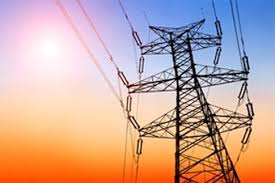This course will provide a comprehensive overview of fundamental concepts on voltage stability, such as the significance of reactive power management and voltage control. Modelling and analysis techniques to identify potential voltage stability problems and solutions during the planning, design, and operation of power systems will also be presented. The course will also cover in detail various technologies available today to prevent voltage stability on power systems, including static var compensators and inverter-based dynamic compensators. Case studies of actual voltage instability problems and equipment solutions will also be presented. The impact of wind generation on system voltage stability, interconnect requirements, reactive power and voltage control equipment solutions will also be covered. In addition, sustainable power generation will be addressed.
Objectives:
At the end of this course, participants will be able to:
• Understanding power system stability problems and their classification.
• Understanding modeling requirements of power system equipment for different studies.
• Understanding causes of instability and methods of analysis and enhancement of different power system small and large disturbance rotor angle stability phenomena.
• Understanding different methods and techniques of power system stability controls and their limitations.
• Using computer packages for analysis of power system stability problems.
• Comprehend different sustainable power generation techniques.
Who should attend:
Electric utility transmission and distribution engineers, consultants, and other personnel involved in transmission system planning, design, and operation.
Daily Outlines:
DAY 1
• Introduction and Basic Concepts
• Definition and classification of power system stability
• Conceptual relationship between power system stability, security and reliability
• An elementary view of the voltage stability phenomenon
• Synchronous machines
• Excitation systems
• AC Transmission
• Power system loads
• Reactive Power and Voltage Control
• Methods of voltage control
• Principles of reactive compensation in transmission systems
• Static and dynamic compensators
DAY 2
• Typical Scenarios of Voltage Instability
• Long-term voltage instability
• Short-term voltage instability
DAY 3
• Prevention of Voltage Instability
• System design measures
• System operating measures
• Methods of identifying causes of instability and selecting remedial measures
• Case studies and illustrative examples
• Technologies for Prevention of Voltage Instability
• Static VAR compensators
• Large STATCOMs
• Smaller inverter-based dynamic compensators
• Case studies and illustrative examples
DAY 4
• Major Power Grid Blackouts
• Description of events
• Causes of blackouts
• Impact of Wind Generation on System Voltage Stability
• Wind turbine generator types
• Wind generation interconnect requirements
• Equipment solutions for reactive power and voltage control
• Case studies of wind plant compensation systems
DAY 5
• Concentrating Solar Power (CSP) Technologies
Solar Dish/Stirling Power Systems
Parabolic Troughs
Solar Central Receiver Systems
Some Comparisons of Concentrating Solar Power Systems
• Photovoltaic Systems
Introduction to the Major Photovoltaic System Types
Current–Voltage Curves for Loads
Maximum Power Point Trackers
Hourly I –V Curves
Grid-Connected Systems

